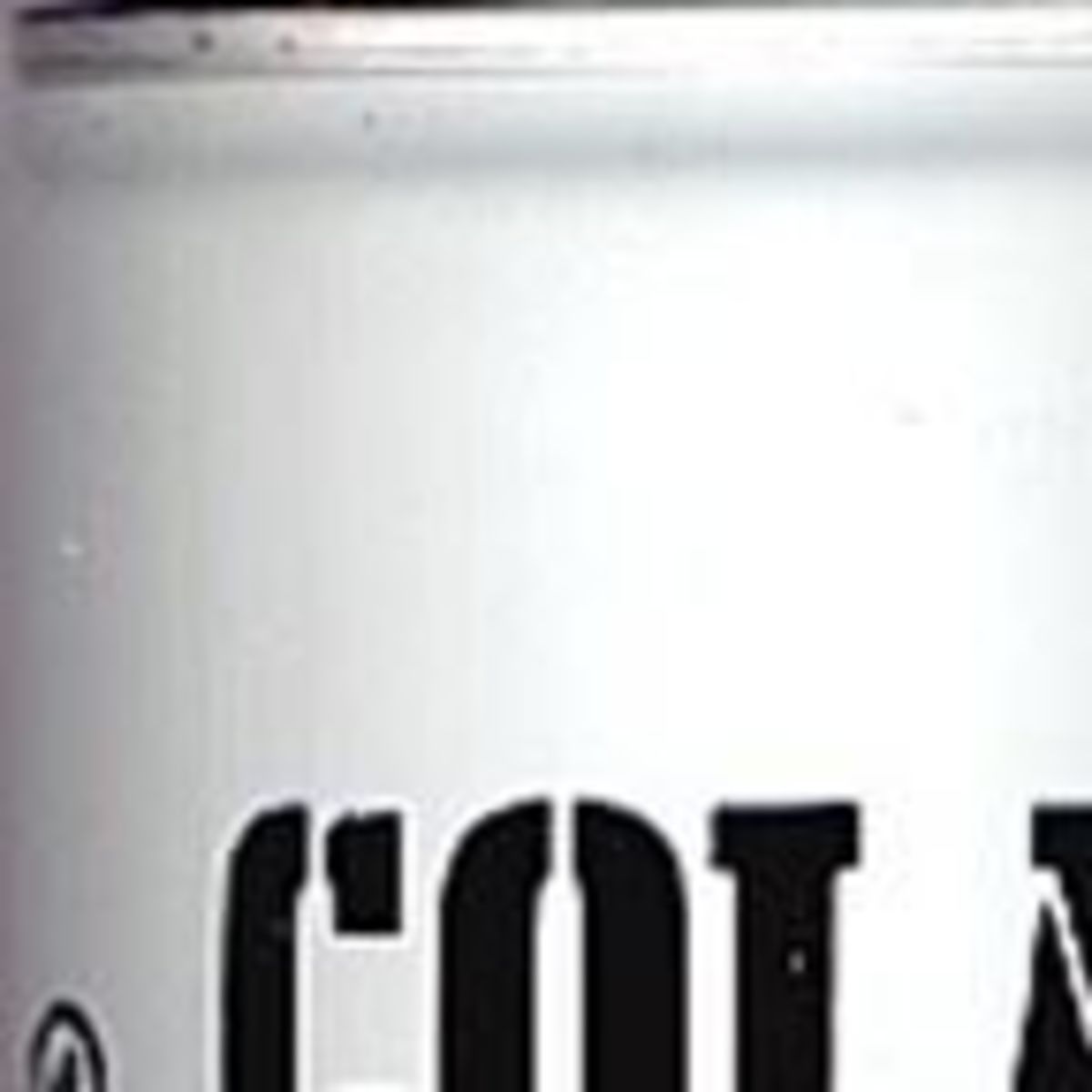Reduced Blood Flow To The Brain
Caffeine is also a vasoconstrictor. That means it makes blood vessels smaller and reduces blood flow. This reduced blood flow is why caffeine helps headaches. Amphetamine medications used to treat ADHD also make blood vessels smaller. Caffeine may have some effects similar to those of common ADHD medications.
Although the exact reason is unknown, reduced blood flow may help treat ADHD by reducing the activity of brain regions that are overactive, allowing them to better function and cooperate with the rest of the brain.
How Does Caffeine Affect Adhd
Caffeine and ADHD
Caffeine is found in coffee, tea, and chocolate to name a few, and its one of the worlds favorite drugs. But what impact does it have on your brain? The right amount of caffeine can help you focus, but too much might make you jittery, anxious, or irritable.
Because caffeine is so prevalent, its important to know how it affects individuals with ADHD.
What Does The Research Say About Treating Adhd With Caffeine
Researchers studying caffeine in relation to ADHD is nothing new, but the actual body of research remains relatively small and inconclusive.
A 2011 study8 published in the Journal of Medical Hypotheses and Ideas reports tea consumption may prove effective to help treat ADHD in adults. Another study9 that same year found a significant improvement in attention deficit disorder in rats who consumed caffeine.
A 2014 review10 in the journal Psychopharmacol called for further investigation of caffeines therapeutic potential as a therapy or an adjunctive agent in ADHD. And a 2013 study11 published in European Neuropsychopharmacology suggests that caffeine could be useful as a treatment, as it appears to normalize levels of dopamine and improve attention in people with ADHD.
You May Like: Where To Buy Fresh Coffee Beans
Caffeine And Your Type Of Adhd
How caffeine affects you might depend on the type of ADHD you have. For example, some people who have hyperactivity symptoms find caffeine has a calming effect on them.
On the other hand, people with inattentive ADHD often say that caffeine kickstarts them and their brain.
That isnt always the case though.
One ADHDer with inattentive ADHD explained her morning coffee helps to ground her emotions and her mind stops flitting as she settles into her body.
How Does Caffeine Affect People With Adhd

If you haveor suspect you haveattention deficit/hyperactivity disorder , you may wonder about the relationship between caffeine and ADHD. Caffeine is one of the world’s most popular drugs for a reason. Most people love that it helps them feel alert and focused and some people simply enjoy it for the taste.
But if you have ADHD, you may be more drawn to it because caffeine and the medications used to treat ADHD all work on your dopamine system, the reward center in your brain.
Heres what you need to know about caffeine, and how it may affect people with ADHD, especially if you are also already taking stimulant medication to manage ADHD symptoms.
Don’t Miss: Where To Buy Hills Brothers Coffee
Why Does Caffeine Not Affect Me
Did you know caffeine has a different way of affecting individuals? Meaning, the impact of consuming it would vary from person to person. Now, you may ask why does caffeine not affect me the way I want? To answer it more comprehensively, weve prepared our guide today. It will look at the reasons behind which coffee has a lower rate of impact on specific individuals.
Drinking Coffee May Help Treat Adhd Study Says
BARCELONA, Spain Doctors may have an easy-to-fill prescription for people with Attention Deficit Hyperactivity Disorder more coffee. Scientists from the Universitat Oberta de Catalunya report caffeine may be a valid treatment option for certain ADHD symptoms.
ADHD is a psychiatric condition which can cause impulsiveness, difficulty concentrating, and general restlessness. ADHD diagnoses have increased exponentially, especially among children, in recent decades. For example, the CDC estimates over six million American children have the condition. However, despite the seemingly widespread nature of ADHD, doctors still cant seem to agree on how to properly treat it.
One major hang-up is the fact that ADHD symptoms and severity vary greatly from person to person. Another is that popular ADHD drugs like Ritalin and Concerta can cause a number of side-effects.
So, in pursuit of a better way to treat ADHD, the research team looked into the possibility of using caffeine to alleviate some associated symptoms by performing a systematic review of animal studies. Ultimately, their analysis concludes the prescribedconsumption of caffeine can indeed increase attention and retention capacity in both adolescents and adults diagnosed with ADHD.
Also Check: Is Coffee Bad For Ibs Constipation
Coffee And Adhd: Why Caffeine Is Not Recommended For Adhd
Coffee is a drink full of virtues. In addition to boosting your energy, concentration, and morale, several studies show that regular consumption reduces the risk of heart diseases, neurodegenerative diseases such as Alzheimers and Parkinsons, and several types of cancer. But ADHD and coffee are a bad mix. Why?
Children and adults with ADHD have trouble concentrating, completing tasks that are complex, and paying attention. They often have trouble staying still, taking their turn, and frequently act impulsively. Although these behaviors can be found in all human beings, they are present in an unusually pronounced and prolonged manner in those with ADHD.
Table of Content
People Who Dont Know They Have Adhd
This group of ADHDers stumbled on caffeine at some point in their lives and found it helped them to function better. They felt more focused and in control after consuming caffeine.
Without even knowing why, they started to include lots of caffeine in their day. People in this group are often super caffeine users.
Recommended Reading: Best Coffee Shop In Nyc
How Much Caffeine Is Safe
The Mayo Clinic7 reports 400 milligrams of caffeine each day is safe for an adult thats about four cups of coffee. In children, the maximum caffeine intake varies by age, with the 4- to 6-year-old age range at 45 milligrams per day, and 85 milligrams for a 10 to 12-year-old. Pregnant women or those trying to conceive should limit caffeine to a maximum of 300 milligrams per day.
Caffeine And Adhd: What You Should Know
Attention deficit hyperactivity disorder is a common condition that affects children and adults. It is estimated that 2.5% of adults and 8.4% of children have ADHD.
The typical symptoms of ADHD include hyperactivity, impulsivity, and inattention. This can affect both the classroom, for children, and the workplace, for adults. In addition, ADHD is known to have an impact on social skills and daily tasks, but this depends on the age and severity of the condition.
Read on to learn more about the relationship between caffeine and ADHD, including the associated risks and benefits.
mikroman6 / Getty Images
Don’t Miss: How To Make Chai Latte With Tea Bag
Some People Build A Tolerance To Caffeine
People who regularly consume coffee and other caffeinated beverages can develop a tolerance to it. Since caffeine blocks adenosine receptors, the body produces more adenosine receptors to counteract the effects of frequent caffeine consumption.
In one small study , researchers examined the effects of continuous caffeine consumption on the cycling performance of 11 physically active adults.
At the start of the study, the participants had higher heart rates and exerted greater cycling power after drinking caffeine. After 15 days, however, the effects of the caffeine began to decrease.
Given these results, it appears that people who regularly consume caffeine may build up a tolerance to its stimulant effects.
However, other research has suggested that continuous exposure to caffeine how the body absorbs or metabolizes it.
Dont Miss: How Do I Clean My Coffee Maker With Vinegar
Putting Too Much Coffee In The System

The second most common reason for coffee not working correctly is the abuse of caffeine in the first place. Drinking coffee has its benefits like getting rid of slumber and sleepiness, energizing the body for a days work. But overconsumption of it can lead to catastrophic consequences. Apart from an increase in heart diseases, youre also likely to lose all sensitivity to caffeine.
Like any other foods and drinks, coffee has its limits, set by the medical experts. Taking in anything above 300-400mg of caffeine will reduce sleep to an alarming rate. Continuous consumption of such a high dosage of coffee each day will limit your bodys sensitivity towards the substance.
Your body will slowly become immune to the effects of caffeine and desire more to recharge up. So, this cycle will continue while you increase the intake every day to get some lift. So, yes, if youre overconsuming it, try to limit and discipline the nature of drinking coffee to maximize the impact.
You May Like: How Much Caffeine In Insane Labz Psychotic
How Does Caffeine Affect The Brain
Caffeine works by stimulating the brain and nervous system. It does this by blocking the action of a chemical called adenosine. Adenosine is a neurotransmitter that slows down nerve cell activity so it is responsible for making us feel sleepy. When caffeine blocks adenosine, it increases nerve cell activity and makes us feel more awake and alert.
Why Doesnt Caffeine Affect Adhd
Because most ADHD prescriptions are based on stimulants, it may seem okay to try ADHD self-medication with caffeine. Not so fast, gentle reader. Things are not that straightforward. On caffeine and ADHD, it is said that caffeine can have risky effects on children with ADHD and should not be considered.
One study suggests that caffeine may be beneficial as an ADHD treatment because it normalizes dopamine levels and improves attention in people with ADHD.
Another study suggests that tea containing caffeine may help adults with ADHD. Although caffeine is similar to ADHD medications, there are some cautions to consider before using it.
In normal times, adenosine, a molecule whose role is to protect the brain by slowing down nerve activity, regularly attaches itself to small receptors present on neurons to induce a state of drowsiness. However, since caffeine molecules have the same molecular structure, they can bind to these receptors and prevent adenosine from acting.
The action of neurons is accelerated, while this increased activity also leads the pituitary gland to ask the body for increased production of adrenaline, a stress hormone.
But like enzymes, no two people have the same number of receptors. So, for a given quantity of caffeine in the brain, the biological effects will depend on the number of receptors available.
Get the most effective treatment for ADHD symptoms by clicking the button below.
Don’t Miss: How To Trade Coffee Futures
Tips For Reducing The Amount Of Caffeine You Consume Each Day
There are a few things you can do to reduce your caffeine intake.
First, try drinking decaffeinated coffee or tea. You can also try switching to caffeinated beverages that have lower caffeine content, such as green tea or dark chocolate.
Finally, if youre still finding it difficult to cut back on your caffeine intake, its important to seek help from a medical professional.
Why Am I So Sensitive To Caffeine
A number of factors result in caffeine sensitivity, including things like genetics and the livers ability to metabolize caffeine. A caffeine allergy occurs if your immune system mistakes caffeine as a potentially dangerous invader and tries to fight it off with antibodies. This can cause severe negative reactions to coffee.
Also Check: How Much Caffeine In Instant Coffee
Can You Treat Adhd With Caffeine
I regularly get emails from readers saying:
I have ADHD. I dont want to take medication. Can I take/do_____instead?
They might be suggesting flaxseed oil, a homeopathic remedy, meditating or caffeine.
It would be great if there was ONE thing that resolved all ADHD related problems. There isnt.
Instead, managing ADHD effectively requires a multi-pronged approach education, behavioural changes , lifestyle changes , learning ADHD friendly techniques , possibly therapy, possibly ADHD meds.
Even though caffeine and ADHD medication like Adderall are both stimulants, its not as simple as replacing one thing for another because neither is a complete treatment.
Its easy to see why people think caffeine could be used to replace meds, though, because both are stimulants.
However, while caffeine and stimulant ADHD medication are both central nervous system stimulants, they work differently on the brain.
ADHD meds
ADHD meds increase the amount of neurotransmitters dopamine and norepinephrine in your brain, which means focus and concentration increase.
Caffeine
In contrast, caffeine blocks the neurotransmitter adenosine from taking its usual action of prompting sleep, which means feeling alert, etc.
In his book, Taking Charge of Adult ADHD, Dr. Russell Barkley says caffeine affects the wrong brain neurochemicals for people with ADHD and advises prescription ADHD medication over caffeinated substances.
What Can I Do If I Want To Feel The Effects Of Caffeine
If you want to feel the effects of caffeine, there are a few things you can do.
First, try drinking more of it. If youre only having one cup of coffee in the morning but you cant get feeling, try having two or three. You might also want to try drinking caffeinated beverages throughout the day instead of just in the morning. Or another way, you will reset your caffeine tolerance by trying slowly cutting down on the amount of caffeine you consume or taking a break from it for a few days to a week. Once you restart, you may find that the effects are stronger than before.
Second, try slower-releasing sources of caffeine like tea or chocolate. These can take longer for the body to absorb, so you might feel their effects for longer.
Third, lower your sleep debt. We recommend keeping your sleep debt below five hours. Take a nap for 10 -15 minutes or sleep an extra hour to help reduce your debt. Focus on your sleep. Sleeping a lot will still not be as effective as you sleeping less but having a deep sleep. When you wake up, you will not feel tired and get rid of the dream state. Let your mind relax before going to sleep to achieve results.
Fourth, try to establish a regular sleep schedule. Go to bed and wake up at roughly the same time each day, even on weekends. This will help train your body to fall asleep and wake up at certain times, making it easier to get a good nights sleep.
Read more: How much caffeine in an espresso shot
Read Also: Where Is The Nearest Coffee Shop
The Verdict To Why Caffeine Doesnt Affect Me
Being unaffected by caffeine is fairly common and is probably a combination of multiple factors listed here, not just one. After all, its not a miracle cure for sleepiness.
So, if you find yourself questioning why caffeine doesnt affect me and craving the jolt of energy, try looking for alternative ways to perk yourself up.
No matter what your preferred caffeine source is cold brew, espresso, French press, tea, or energy drinks if you are no longer feeling the benefit, try dialing it back a little over time. Then, add back in the occasional extra cup to try and get the much-needed boost.
Youre Experiencing Withdrawal Symptoms

It may sound counterintuitive to be experiencing withdrawal symptoms, while still consuming caffeine, but research shows you donât need to have cut out caffeine altogether to feel withdrawal.
For example, one study found when people who were used to consuming 300 milligrams of caffeine cut down to 200 mg or less, they experienced withdrawal symptoms. And while 100 mg of caffeine sounds like a lot, thatâs equivalent to about one 8-ounce cup of coffee. So, if youâre used to drinking four cups of coffee a day, and you go down to three, this may be the reason why youâre feeling tired â itâs the withdrawal symptoms not the coffee itself. And you may start feeling these symptoms 12 to 24 hours after your last sip of coffee, but it can happen sooner.
Caffeine also triggers adrenaline and the stress hormone cortisol, so without these, youâre left feeling less alert and awake than youâre used to.
Symptoms of caffeine withdrawal includes:
Weâve covered how long caffeine withdrawal symptoms last here.
Read Also: How Coffee Help To Lose Weight
What The Research Says
While some people report benefits from adding caffeine into their daily routine, others dont. If youre contemplating trying caffeine as a way to lessen your ADHD symptoms, it might be helpful to look into the latest research for answers.
One study found that young, hyperactive rodents who received caffeine combined with exercise showed improvements in behavioral performance, serotonin and dopamine levels, and the brains ability to make new connections.
The research team suggested that these results provide new evidence that caffeine in conjunction with exercise starting in adolescence may be a possible treatment option for ADHD.
Other recent research exploring caffeine use in U.S. Army soldiers with ADHD found promising evidence that consuming caffeinated foods and drinks may improve cognitive performance and impulsive behavior.
Researchers said that more research is needed, but preliminary evidence indicates caffeine or other adenosine receptor antagonists may play a role in treating this mental health condition.
Although these studies show some evidence that caffeine works for ADHD symptoms, others reveal something different. For example, research published in Current Developments in Nutrition found that caffeine used alone increased impulsivity in adolescent boys.
Scientists looked at the use of caffeine and L-theanine an amino acid found in tea and some mushroom species as a potential tool to help improve ADHD symptoms in children.